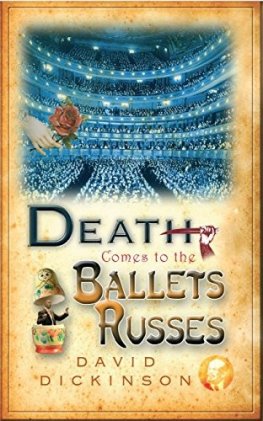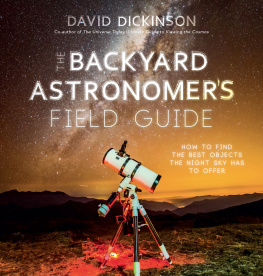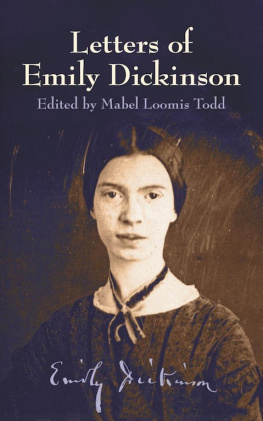David Dickinson - Death on the Holy Mountain
Here you can read online David Dickinson - Death on the Holy Mountain full text of the book (entire story) in english for free. Download pdf and epub, get meaning, cover and reviews about this ebook. genre: Detective and thriller. Description of the work, (preface) as well as reviews are available. Best literature library LitArk.com created for fans of good reading and offers a wide selection of genres:
Romance novel
Science fiction
Adventure
Detective
Science
History
Home and family
Prose
Art
Politics
Computer
Non-fiction
Religion
Business
Children
Humor
Choose a favorite category and find really read worthwhile books. Enjoy immersion in the world of imagination, feel the emotions of the characters or learn something new for yourself, make an fascinating discovery.

- Book:Death on the Holy Mountain
- Author:
- Genre:
- Rating:5 / 5
- Favourites:Add to favourites
- Your mark:
- 100
- 1
- 2
- 3
- 4
- 5
Death on the Holy Mountain: summary, description and annotation
We offer to read an annotation, description, summary or preface (depends on what the author of the book "Death on the Holy Mountain" wrote himself). If you haven't found the necessary information about the book — write in the comments, we will try to find it.
Death on the Holy Mountain — read online for free the complete book (whole text) full work
Below is the text of the book, divided by pages. System saving the place of the last page read, allows you to conveniently read the book "Death on the Holy Mountain" online for free, without having to search again every time where you left off. Put a bookmark, and you can go to the page where you finished reading at any time.
Font size:
Interval:
Bookmark:
David Dickinson
Death on the Holy Mountain
PART ONE
THE WILD GEESE
Consider Ireland. Thus you have a starving population, an absentee aristocracy, and an alien Church and, in addition, the weakest executive in the world. That is the Irish Question.
Benjamin Disraeli, 18441
The box was brown and tightly bound with string. It sat happily on a small table in the front hall of the Powerscourt residence in Londons Chelsea. Indeed it looked as if the person in charge of wrapping the parcel believed it would only survive the journey if virtually encased in strong twine. The top had so many lines criss-crossing it that it resembled a master cobweb. Occasional loops under the knots bore witness to the fact that the wrapper might have preferred a different profession, pastry cook perhaps, or ornamental plasterer. Lord Francis Powerscourt approached the object gingerly. The box bore his name on the front. He knew what was inside. He felt reluctant to open it. Maybe, he said to himself, the expectation is always better than the reality. And he knew that one of the many divisions into which the worlds population is split those who can whistle and those who cant, those who adore Venice and those who complain about the smell, those who can order drinks in theatre bars at the interval and those who cant was the distinction between those who can unwrap parcels neatly and those who cant. Powerscourt knew that his wife Lucy would have the thing open, the string tied neatly into a ball, the box itself virtually intact and available for reuse, in a minute or two. And he knew, as night followed day, that his own efforts would be similar to those of his three-year-old twins, torn strips of cardboard lying all over the floor, pieces of string also strewn on the ground to trip the unwary, a general sense of mess and disorder. Sighing slightly, he opened the drawer of the table and brought out a pair of scissors. Why did they have to put on so much bloody string? he said to himself after a few minutes, with only three of the fetters broken. And why was the top of the box so hard to open? With growing irritation he forced the lid open at last.
The Cathedrals of England, Volume One, by Francis Powerscourt, it said on the cover of the book. He stared at it in wonder and disbelief. His name. His book. His cathedrals. Had he not visited them all, walked their cloisters and their clerestories, climbed up their towers where the great bells rang out over fen and plain? Had he not worshipped at Matins in the morning and with the sombre beauty of Evensong as the light faded from the day? He began to smile as he unpacked his treasures. There are a few great moments in a mans life, he said to himself, catching your first fish, scoring your first century, getting married, looking at your own newly arrived children so small and cross in their tiny white clothes. This was another, opening the first book you had written. He remembered his oldest friend and companion in arms, Johnny Fitzgerald, telling him about the intense joy these occasions called forth, how for days afterwards you would be drawn to the place where these very special first editions were being displayed, to touch them, to open them at random, caring little for the content, to smile once more, maybe even to laugh. Johnny had compared it to the first time he tasted Chassagne-Montrachet, a sensation he, Johnny, had described as being akin to being received into heaven with a band of angels serenading you with anthems of celestial glory.
There was a sudden burst of noise coming down the stairs. The twins, Christopher and Juliet Powerscourt, seemed to have escaped the attentions of whoever was meant to be guarding them. They were singing some strange song that might once have been a nursery rhyme. They stopped when they saw the remains of the parcel and the string. Christopher pointed at the box and nudged his sister in the ribs. He looked, his father thought, like a person who has forgotten the word for something in a foreign language.
Juliet eyed the object carefully.
Box, she said with a great effort, as if some mammoth feat of mental arithmetic had just been performed. Box.
Box good, said Christopher and led the charge down the rest of the stairs. Powerscourt noticed that their clothes were still clean even though they had been up for an hour or more, a minor miracle where the twins were concerned. He thought of trying to explain to them that he had written the book but decided that it was no use. He might as well tell them that a man from Mars had just landed in their back garden. They pulled the box on to the floor and Christopher climbed in. Juliet began gathering bits of string and said Pull firmly to her father. Quite what they had in mind was not apparent for at that moment two things happened simultaneously. Powerscourts wife, Lady Lucy, appeared at the top of the stairs and began summoning the children back to their normal place of confinement at the top of the house, and there was a firm, confident knock at the front door.
Powerscourt ushered into his hall an immaculate footman, clad in black breeches and a black jacket with a rather daring yellow waistcoat and brilliantly polished black boots.
Lord Powerscourt? said the apparition with the yellow waistcoat.
I am he, said Powerscourt, smiling at the young man.
I have a message for you, my lord. The clothes, Powerscourt thought, might be the clothes of Mayfair and the West End, but the vowels were pure Whitechapel. From my lord, my lord, and he pulled an envelope from his inside pocket with the panache of a conjuror.
Forgive me, said Powerscourt, and who might your master be?
Sorry, my lord, said the footman, forgive me, my lord. I work for Lord Brandon, the Earl of Lincoln, my lord. And forgive me, the young man began to stammer slightly as if the whole ordeal of two lords in one sentence might be proving too great a burden, my lord wonders if you could give an answer straight away, my lord.
Powerscourt opened the envelope. Dear Lord Powerscourt, he read, I wish to take advantage of your wisdom in a troubling and troublesome matter. I do not feel able to vouchsafe any details in this letter. Ill health leaves me unable to come up to town at present. I would be most grateful if you could feel able to come down and see me here at Kingsclere as soon as possible. The matter appears trifling at present, but I fear greatly for the future. Your experience and your expertise are badly needed. Yours, Lincoln.
Is there any reason, Lucy, why I shouldnt go to Kingsclere in the morning? asked Powerscourt.
None at all, said Lady Lucy, seizing a twin firmly in each hand.
Please send the Earl my best wishes, said Powerscourt, and tell him that I will call on him round about eleven oclock tomorrow morning.
The young man bowed and took his leave. The twins were transported to the top floor. Powerscourt grabbed half a dozen of his books and brought them up to the drawing room to show his wife. The Cathedrals of England, he read on the title page, by Francis Powerscourt, published by Constable, Orange Street, London, MCMV.
Lord Francis Powerscourt had been an investigator for many years now. He had served in Army Intelligence in India and South Africa and had recently returned from investigating the murder of a British diplomat on the Nevskii Prospekt in St Petersburg. Apart from the twins, he and Lady Lucy had two older children, Thomas, aged twelve, and Olivia, aged ten. He had written the book during a two-year gap when he gave up detection at the request of his wife, after he was nearly killed investigating a couple of deaths in one of Londons Inns of Court.
Oh, Francis, was all Lady Lucy could say when she saw the books. Oh, Francis, she said again, and began to flick through the book and the illustrations. Im so proud of you, Francis, well have to have a party. But tell me, what did that yellow waistcoat man want with you? Why are you going to Kingsclere in the morning?
Font size:
Interval:
Bookmark:
Similar books «Death on the Holy Mountain»
Look at similar books to Death on the Holy Mountain. We have selected literature similar in name and meaning in the hope of providing readers with more options to find new, interesting, not yet read works.
Discussion, reviews of the book Death on the Holy Mountain and just readers' own opinions. Leave your comments, write what you think about the work, its meaning or the main characters. Specify what exactly you liked and what you didn't like, and why you think so.




